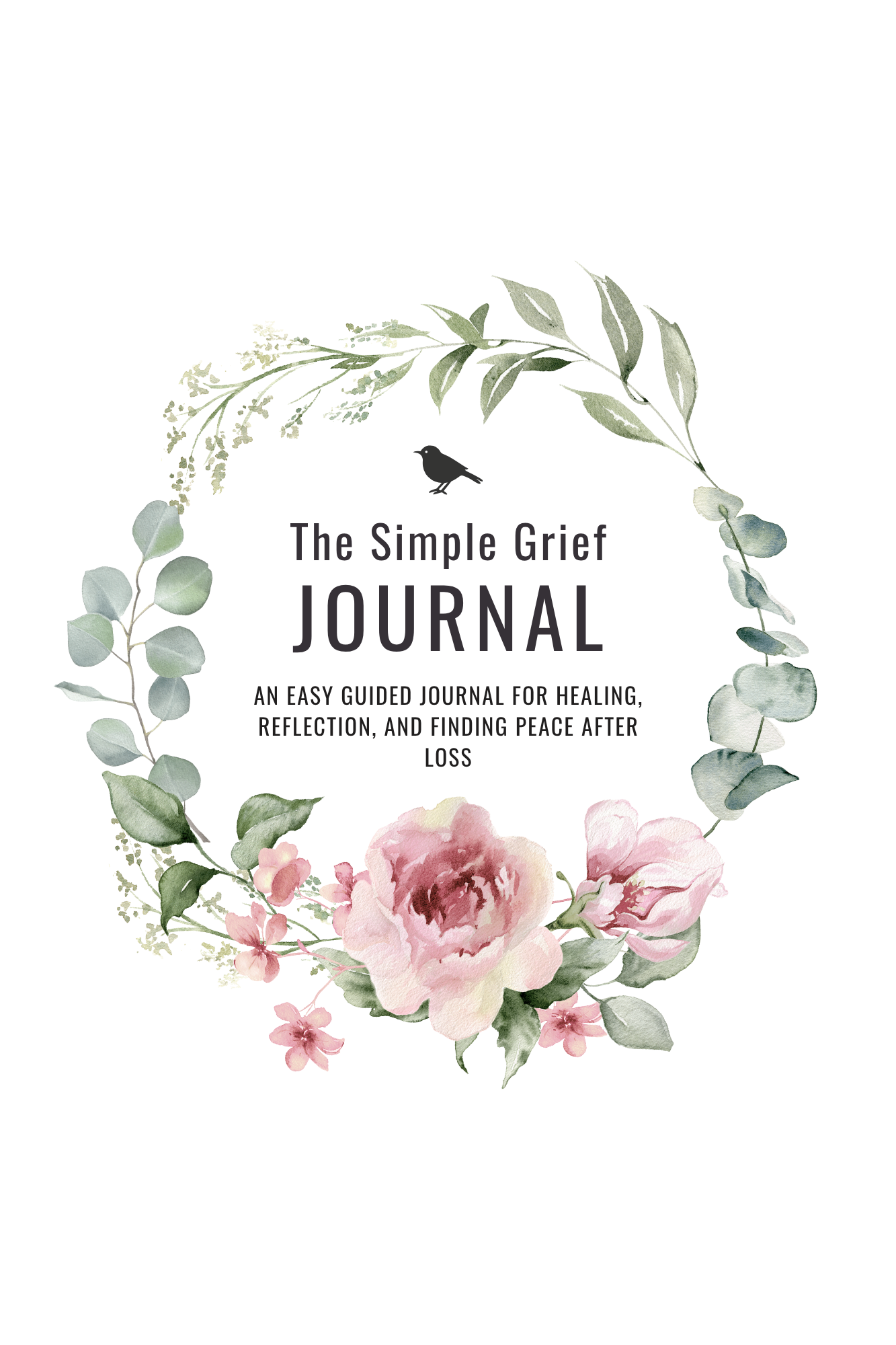How to handle bereavement

How to handle bereavement with simple advice for grieving hearts and the people who care about them
When someone dies, it affects more than just the person closest to them. Whether you're grieving a loss yourself or walking alongside someone who is, bereavement brings challenges that touch every part of life, emotional, practical, and even physical.
This quick guide offers support from both sides: for those coping with their own grief and for those trying to help. It’s gentle but real, offering clear ways to support yourself or someone else, without clichés or pressure about how to handle bereavement.
When the loss is a parent
Losing a parent—no matter your age—can feel like the ground has shifted.
Whether you were close or had a complex relationship, it’s a significant change.
If you're grieving:
- Expect mixed feelings. Sadness, guilt, relief, even numbness—it’s all valid.
- Give yourself time to process what this means for you emotionally and practically.
- Talk about them if it helps. Sometimes the simple act of saying their name brings comfort.
- Let others help with decisions around belongings, paperwork, or funerals.
If you're supporting someone:
- Offer help with admin,bsorting documents, making calls, even grocery shopping.
- Listen without trying to “fix” things. You don’t need to have the perfect words.
- Avoid over-sentimentalising the parent if the relationship was difficult.
When the loss is a child
The loss of a child is probably the most painful things a person can face.
There’s no quick way through it. Just presence and patience.
If you're grieving:
- Everything will be unbearable for a while. That doesn’t mean you’re doing it wrong.
- Don’t rush yourself into “moving forward.” Grief will take the time it needs.
- Look for specialist support groups or therapy—places where you absolutely don’t have to explain everything or indeed anything at times.
- Let yourself feel anything that comes—rage, despair, numbness, love. It’s all real.
If you're supporting someone:
- Show up without expectations. Let them lead.
- Avoid phrases like “at least” or “you’re so strong.” They don’t help.
- Offer practical support: food deliveries, helping with other children, or simply being there.
- Keep checking in weeks and months later. The hardest days often come after the immediate chaos has passed.
When the loss is a sibling
Grieving a sibling can stir up childhood memories, family dynamics both good and bad, and feelings of being unmoored and a bit lost, upon the sea of life, so here is how to handle bereavement of this nature.
If you're grieving:
- Talk to people who knew you both. Shared memories can be grounding.
- Allow yourself to feel the impact, even if others focus more on the parents or spouse of the person who died.
- If you’re supporting your own parents through this too, remember to look after your own grief.
If you're supporting someone:
- Don’t overlook sibling grief. Acknowledge the depth of that loss.
- Ask about the person who died, what they were like, what they meant to your friend.
- Be a steady presence. It really matters.
When the loss is a friend

Losing a close friend can be just as painful as losing family. The grief may feel less “public,” but it’s deeply personal.
If you're grieving:
- Don’t minimise your feelings. Friendship is real and powerful.
- Share memories with others who knew them if you can.
- Write to them if it helps. It’s a way to process unspoken things.
If you're supporting someone:
- Validate their loss. Avoid saying, “At least it wasn’t a family member.”
- Be open to hearing the same stories again and again.
- Invite them out for coffee or a walk, even if they decline, the offer still means something.
How to handle bereavement of a pet
When a Pet Dies
The death of a beloved pet can leave a deep gap. Pets are part of our routine, our emotional lives, our comfort.
If you're grieving:
- It’s normal to feel intense sadness. This was a real bond.
- Take your time deciding what to do with their belongings.
- Mark their memory in your own way—a photo, a walk in their favourite spot, or a quiet moment.
If you're supporting someone:
- Avoid saying “It was just a pet.” It wasn’t, their pet was a member of their family.
- If it was a family pet, acknowledge how children might be grieving too.
- Be kind and avoid judging the intensity of their grief.
When the death was sudden or traumatic
Unexpected losses often bring shock, confusion, and trauma.
If you're grieving:
- Flashbacks, anxiety, or numbness are common. You’re not alone in that.
- Accept help with anything that feels too big, funerals, phone calls, even getting dressed.
- Consider trauma counselling.
If you're supporting someone:
- Don’t push them to talk about what happened. Let them take the lead.
- Keep things simple and steady. Offer food, a place to rest, or a short walk, nothing heavy.
- Gently help them get medical or mental health support if needed.
Grieving a complicated relationship

Not all grief is straightforward. If your relationship with the person was difficult, estranged, or unresolved, it adds extra layers to the loss.
If you're grieving:
- You’re absolutely allowed to feel confused, angry, or conflicted.
- Unfinished business can weigh heavy. Try writing out your thoughts privately, just for yourself.
- Your grief is still valid, even if you’re not sure how to name it.
If you're supporting someone:
- Don’t assume it’s easier because the relationship was complicated. It can be harder.
- Avoid judgment or over-simplifying their experience.
- Just be there. Let them talk or not talk, cry or not cry.
What grief can look like
Grief isn’t just sadness. It can affect your whole self, and everyone experiences it differently:
- Exhaustion or insomnia
- Changes in appetite
- Forgetfulness or brain fog
- Irritability or detachment
- Waves of emotion—often when you least expect it
If you're grieving:
- These are normal responses, especially in the first few weeks and months.
- Let others help where they can.
- If things feel stuck or unbearable for a long time, seek professional support, especially if you have grief complicated by other circumstances like a difficult relationship or sudden death.
If you’re supporting someone:
- Keep checking in, even if they seem “fine.”
- Look out for signs they might be struggling more than they’re saying—withdrawal, self-neglect, or high-risk behaviours.
- Encourage them to talk to a GP or therapist if you're concerned.
Helping with daily life after loss
If you're grieving:
- Do what you can. Some days that’s just brushing your teeth or getting dressed.
- Keep meals simple and gentle. Think warm, comforting, easy.
- Try to sleep, even if it’s broken. Nap if needed.
- Use lists or reminders if memory is foggy.
- Don't be afraid to ask for help, people really do want to step in to make your life easier, so let them.
If you’re supporting someone:
- Offer help without asking, “What do you need?” (It’s hard to answer.)
- Say, “I’ve made a meal—can I drop it off?” or “I’m going to the shops—need milk?”
Help with practical things like returning forms, tidying up, or walking the dog or feeding the cat.
To round off
There’s no timeline for grief. It changes shape, but it doesn’t just disappear.
Whether you’re grieving or supporting someone who is, be kind, be patient, and allow space for the ups and downs.
You don’t have to say much to make a difference, sometimes, frankly, less is more.
Sometimes the most comforting thing is just knowing you’re not facing it all alone


